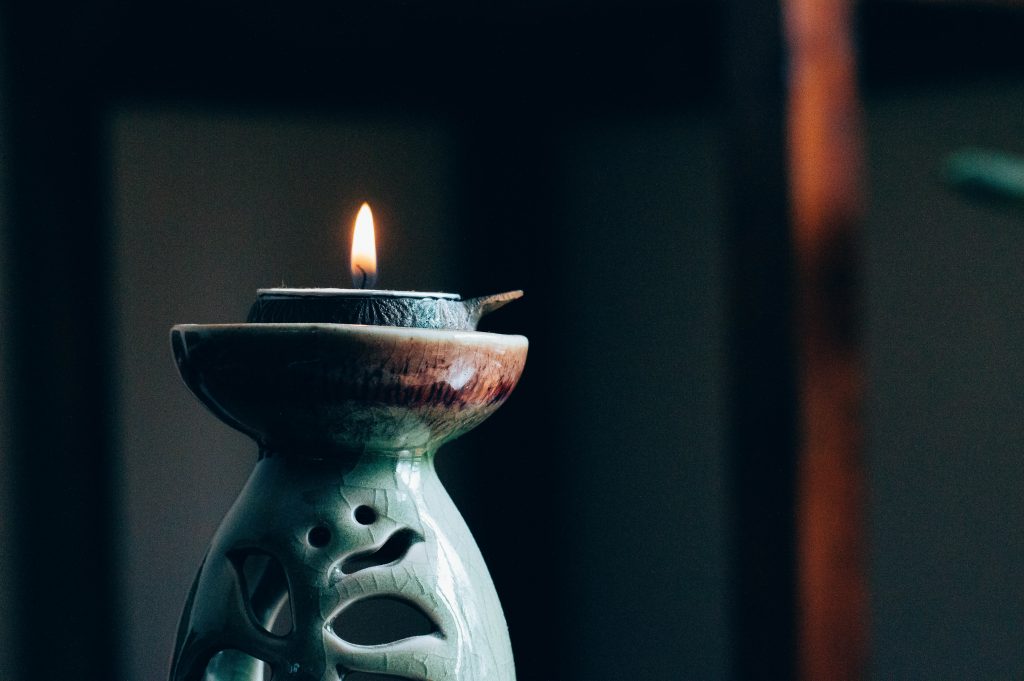
The most common method of warming up or heating up essential oils is adding them to an essential oil burner, placing a candle underneath, and letting it burn away. This may seem like a good idea. However, it can actually render the essential oil ineffective and poses some hazardous issues.
Essential oils are volatile organic compounds. They can change from liquid stage to gas stage quickly, meaning they can easily evaporate when exposed to air. In the presence of heat, this makes the chemical compounds of essential oils break down quicker compared to the absence of heat, changing the chemical structure and can render it ineffective.
There’s a reason why essential oils are kept in dark colored glass bottles, because they oxidise easily. Essential oils exposed to sunlight for a prolonged period is a common culprit, another is essential oils that are being heated up manually. Oxidised essential oils are not only ineffective but also irritating to the skin.
When there’s too much heat, there’s fire. Essential oils are not only volatile, but they are also flammable. Although not common, if you’re still using the essential oil burner method, it may catch on fire, especially if you have curious young children and/or pets living with you.
If you want to enjoy your essential oils via inhalation, opt for a diffuser instead of an essential oil burner. They may cost more and require a little more work and maintenance, but they are definitely better and safer for you in the long run. There are also plenty of options in the market currently.
Now what about using oils that give off that “warm” or even “hot” effect topically? Generally, essential oils that are considered warm or hot oils are ginger, cinnamon bark, clove, basil, oregano and etc. Hot oils can help to provide pain relief when applied topically but they also have a much higher risk of irritation compared to essential oils that aren’t considered hot.
Since essential oils are so strong and concentrated by nature, any type of essential oil that is pure and unadulterated will cause an adverse reaction when they come into contact with the skin without prior dilution. So… does that mean that you can’t use hot essential oils topically, ever?
While it is better to enjoy hot or warm essential oils by adding them to a diffuser, you can still use them topically, but with much stronger dilution than usual. When working with hot oils, use a stronger dilution rate – 0.2% – 0.5% (1-3 drops of essential oils to 2 tablespoons carrier oil).
To conclude, if you want your essential oils to last long and be safe to use, never expose them to heat or sunlight. Not only does it degrade the quality of the essential oils, it can cause a major reaction when it comes into contact with your skin. Although essential oils are organic and natural, it does not mean that they have no dangerous side effects when misused.